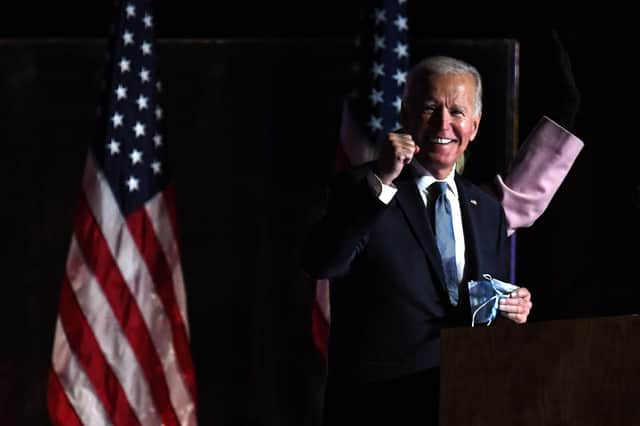Democrat control of White House is not necessarily good news for Scottish business - Andrew Milligan


There has been so much media coverage about Donald Trump’s efforts to remain in the White House, that other important facts about November’s elections have been lost in the dirt. The harsh truth is that although the Democratic party won one race, it lost ground in every other important election, most importantly the Senate which controls the purse strings. The new unofficial leader of the opposition is Mitch McConnell, Republican leader of the Senate, whose reputation for being an obstructionist brought despair to Obama.
Scottish businesses must realise that there is no pot of gold following the US elections. True, a revival in American consumption on the back of a successful vaccination programme will assist many exporters. However, high hopes for government spending of $2-3 trillion to revitalise the US economy, followed by $5 trillion on such areas as infrastructure or renewable energy, these are all dashed. As legislative, tax and spending plans are constrained, Biden will inexorably follow in Trump’s footsteps, using executive orders and regulations to pursue priorities in areas such as the environment, healthcare or technology.
Advertisement
Hide AdAdvertisement
Hide AdBanner headlines will welcome America’s return to membership of the WHO or the Paris Agreement. Biden certainly has a softer style than Trump over geopolitical or trade matters, but the quid pro quo will be America forcing its allies to choose sides, to help tackle problems it cannot solve on its own. A poll after the election showed that Americans see three countries as major rivals to its pre-eminent position as super-power: Russia, North Korea and especially China. “There’s a technology competition, a military competition, an economic competition, an ideological competition and a diplomatic competition,” to quote Ely Ratner, a possible pick for a senior National Security Council position.
In that poll, by far the USA’s closest allies were the UK and Canada, followed by Israel, Germany and France. The idea of a ‘special relationship’ between the UK and USA should be consigned to the history books where it belongs, but the UK does have opportunities in 2021 to repair damaged links, through chairing the G7 meetings and hosting the all-important UN COP26 climate conference in Glasgow. This explains recent statements from No 10, spending more on defence and green policies. Ultimately, the Democrats are working towards a dual-track strategy on China, combining with Beijing over the pandemic and global warming, while strategically constructing alliances to stand up to it militarily and economically. The UK & Scotland will be expected to assist with financial and trade sanctions to alter China’s behaviour over such issues as trade, intellectual property theft, cyber-security, the Uighurs, Hong Kong, Taiwan and the South China Sea.
Washington will see Scotland as a useful market to trade with, but also an important ally in dealing with such tensions. Hence, Biden’s victory is not good news for Bute House. Mr Blackford MP has said that ‘it gives great hope to progressives here in Scotland and around the world’. However, is it likely that Biden would welcome Scottish independence? Such a step would have serious implications for the USA’s security framework, the Faslane nuclear base, the ability of the rest of the UK to support the Five Eyes intelligence platform, or the opportunities for Russia to interfere more in European matters.
Most Scots will welcome Biden as President. However, his Democratic party won one important election and lost a host of others. His immediate focus will be on domestic matters but, where he turns his attention to foreign affairs, he will look for allies to achieve his wider aims. To mis-quote another famous President: “ask not what America can do for you, ask what you can do for America”.
Andrew Milligan is an independent economist and investment consultant to several organisations. He was head of global strategy at Aberdeen Standard Investments and member of Court at Heriot Watt University; he is currently a Board member of the Asia Scotland Institute and trustee of various charities.
Comments
Want to join the conversation? Please or to comment on this article.